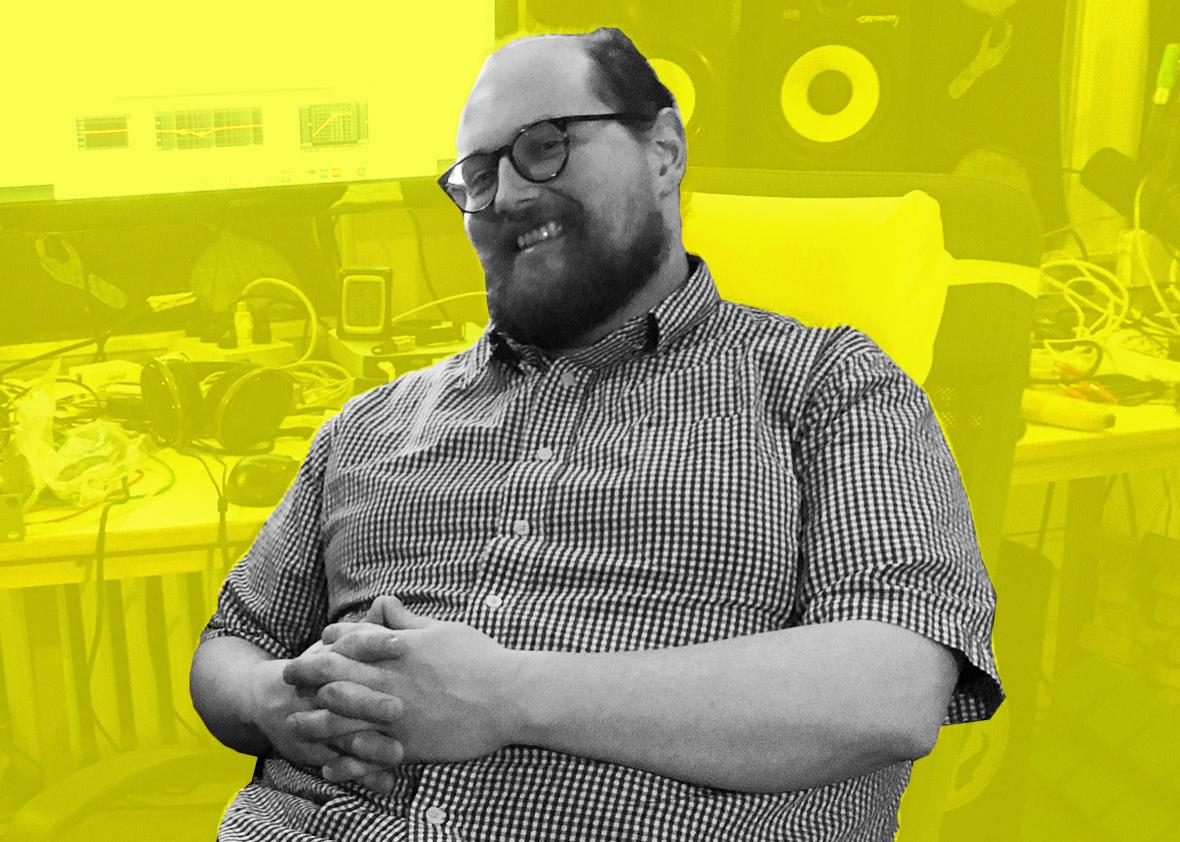This season on Working, we took a trip to Baltimore to chat with some of the city’s residents about how they make a living there. We’re hoping to learn a little about the ways Baltimore shapes their work—and the ways they’re shaping Baltimore by working.
Listen to this episode of Working with special guest Dan Deacon:
Subscribe in iTunes ∙ RSS feed ∙ Download ∙ Play in a New Tab
Shortly before we visited Baltimore-based electronic musician Dan Deacon, he spent a day trying to source Legos. The goal, as he explains it, was to better secure his equipment together, making the peculiar gear he travels with easier for TSA to inspect. He figured that if he could quickly separate and reattach the various pieces, they would be less likely to get destroyed on the road.
It’s an eccentric solution, but it’s also one that gets to the heart of Deacon’s aesthetic—at once cobbled together and surprisingly coherent. He claims that he makes “the kind of electronic music that people would dance to, but not in a dance club,” and that liminal quality resonates in both the sound of his work and the ecstatic live shows that he puts on. But for Deacon, time spent on peculiar tasks like tracking down Legos is also part of what it means to be a full-time artist. And those responsibilities mean that he doesn’t always spend as much time making music as he used to.
“When [making music] becomes a job, you all of a sudden have other jobs,” Deacon tells us. “You become a manager of time, and if you have no ability to do that, your job gets very hard very quickly.”
That said, as he tells us in this episode of Working, he enjoys the business-side of his work, having learned to appreciate it while running a DIY venue in Baltimore. “Ultimately, the goal is for the music to be heard by as many people as possible,” he says, and the only way to do that sustainably is to ensure that he can make a living off it. That demand informed his decision to move to Baltimore more than a decade ago. As he explains, the city appealed not just because it was inexpensive, but also because it was centrally located, but not yet saturated with other bands.
Though he’s grown more successful than he was in those early days, he expresses little concern about “selling out.” “It’s almost like an uncanny valley,” he tells us. “You can be pretty unpopular for a while, but you’ll have die-hard fans that love you. As you get more popular, it’ll be great and people will be excited for you. Then you get to this middle level [of] popularity, and people are like, You’re not famous, but we also know who you are.”
Deacon delves into that and more in this episode, which you can listen to via the player above, sharing the way that he brings structure to his potentially structureless days. He takes us through everything for the effort that goes into creating a new song to the fun of designing his own merchandise and putting on live shows. Then in a Slate Plus extra, he gives us an audio tour of his Baltimore apartment, which doubles as a recording studio. If you’re a member, enjoy bonus segments and interview transcripts from Working, plus other great podcast exclusives. Start your two-week free trial at slate.com/workingplus.
